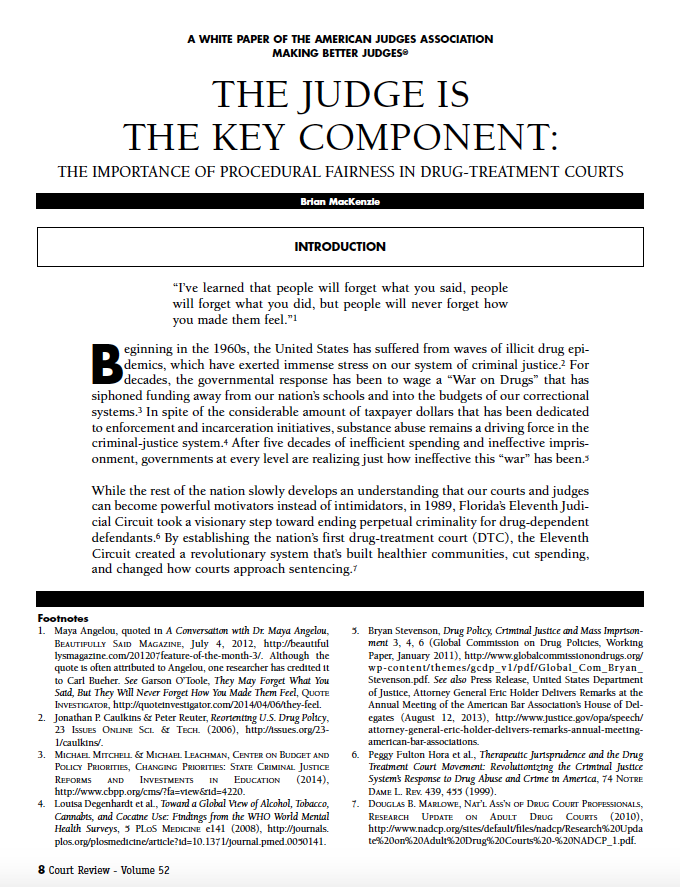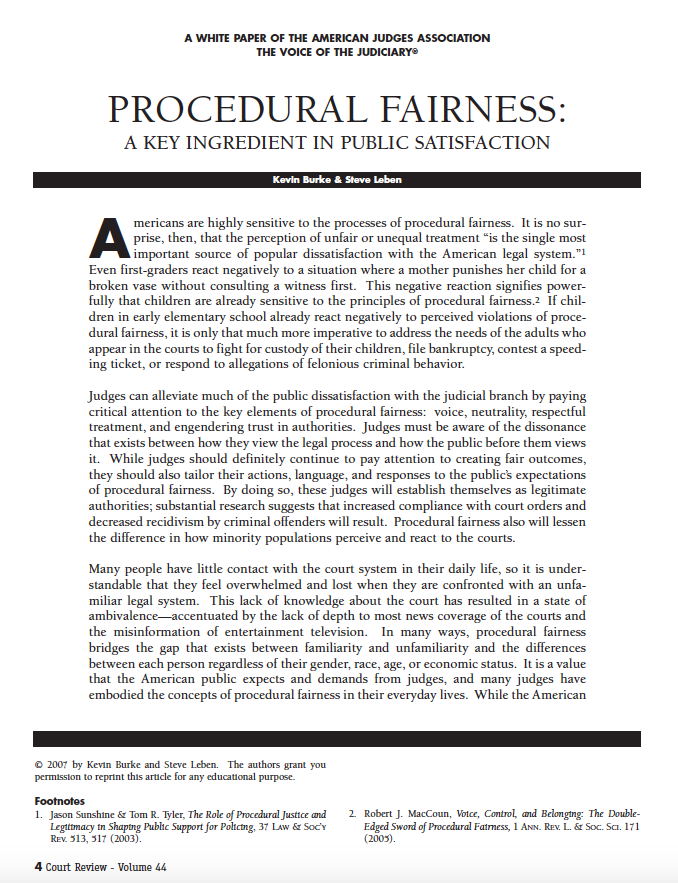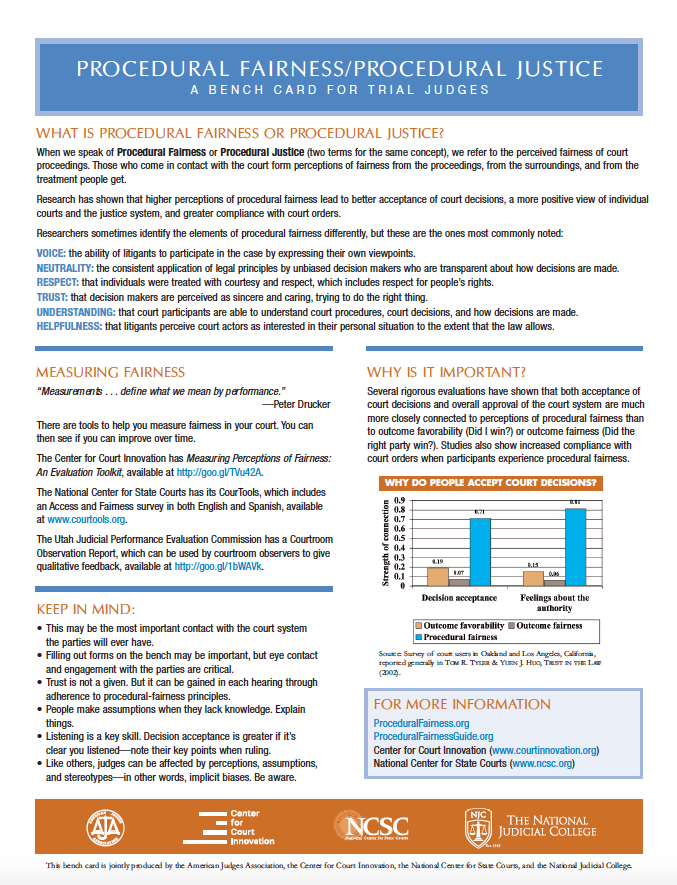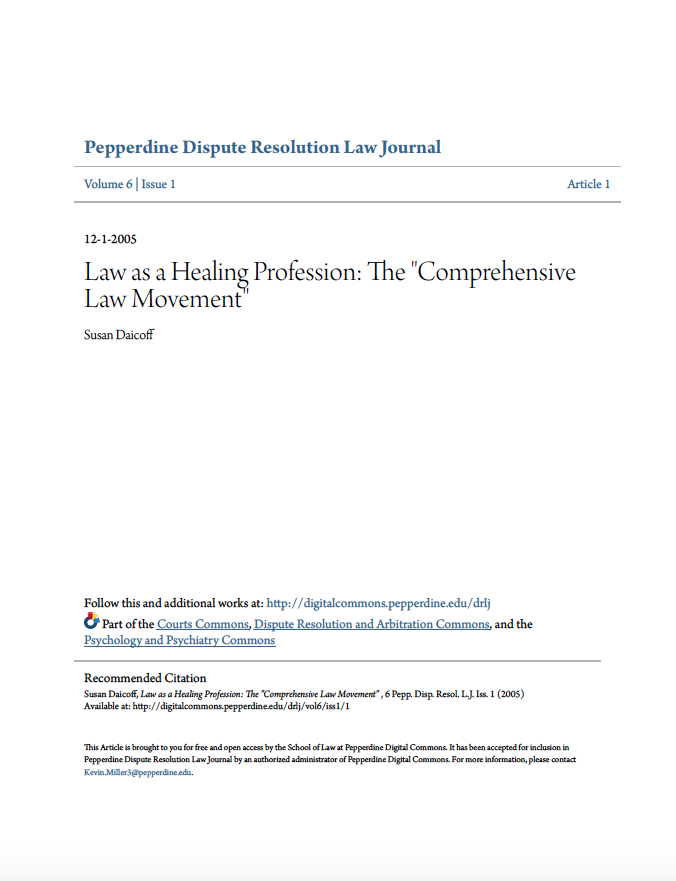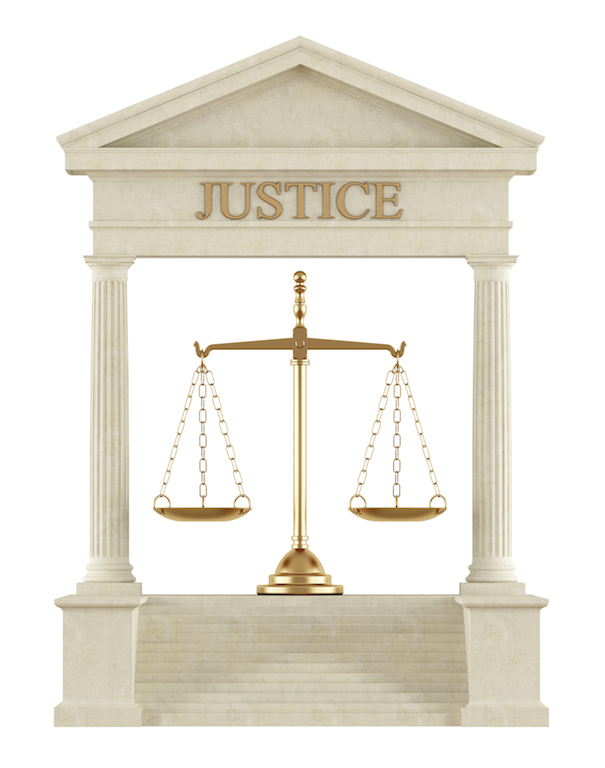

JSI Partners
JSI Raising Awareness
of Procedural Justice
Members of the JSI team can discuss procedural fairness for your program, bringing awareness and understanding of its importance.
Therapeutic jurisprudence (TJ) says that the processes used by courts can promote outcomes connected with participant wellbeing such as respect for and trust in the justice system and the law and offender rehabilitation. To achieve this outcome the operational structure of TJ is built upon the four key concepts of procedural fairness. They are:
- Voice
- Neutrality
- Respectful Treatment
- Trustworthy Authorities
Procedural fairness, is a subjective evaluation of a person’s experience in the justice system and is separate from the actual outcome of the case. While the result is important, an individual’s willingness to accept court decisions is rooted in their perceptions of how they were treated during the process itself.
Have questions or want to learn more?
Ready to retain JSI’s services?

